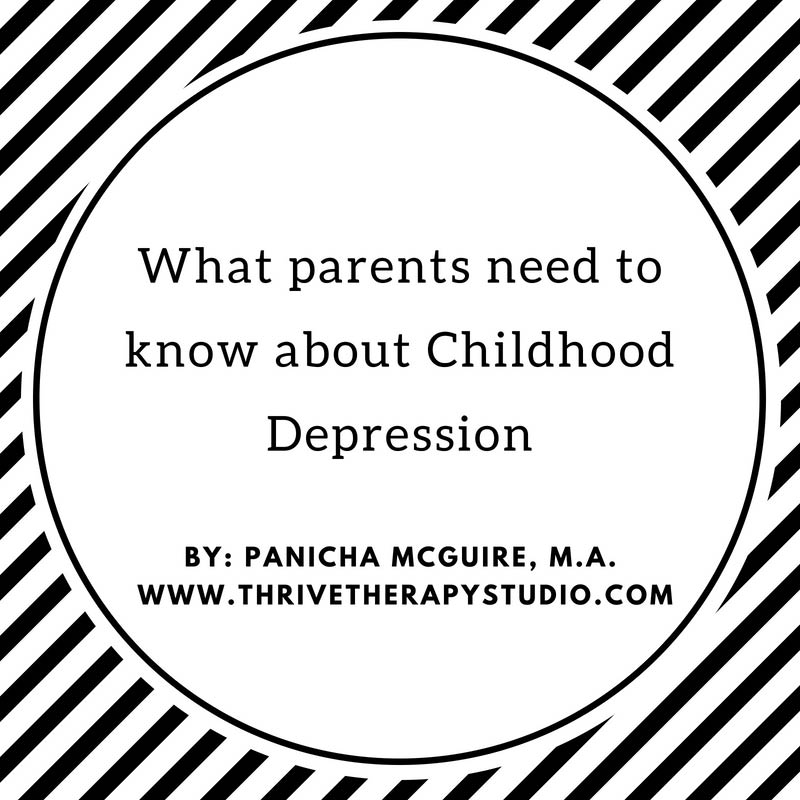What Parents Need to Know About Childhood Depression

Most people think of depression as an adult mental health issue, but children and teens can develop depression too. Sometimes adults assume that children or teens can’t be depressed because they have nothing to worry about, but even those who live in a stress-free and loving environment can develop depression.
Many children and teens with depression are often left untreated because adults don’t recognize their symptoms. It can be difficult to tell whether a child or teen is going through a temporary “phase” or is actually suffering from depression. While most adults with depression look sad, children and teens may look more irritable or angry. Children and teens who cause trouble at school or at home could be suffering from depression.
The following are common signs of childhood depression:
- Changes in behavior (ourbursts, irritability, anger, defiance, academic issues)
- Physical complaints (headaches, stomachaches)
- Decreased interest in activities (no longer enjoys previously enjoyable activities)
- Low energy, increased boredom
- Isolation from peers and difficulty with relationships
- Poor concentration
- A major change in eating or sleeping
- Significant weight gain or weight loss
- Frequent talk or thoughts about death, dying, or suicide (in younger children, these themes may present themselves through play)
- Hopelessness
- Crying more often or more easily
- Harming self (cutting, scratching, hitting)
It’s important to note that not all children or teens will have these symptoms. Some children and teens may continue to function well in their environment despite experiencing depression.
What can parents or caregivers do?
The best thing parents or caregivers can do is to be proactive about your child’s mental health. Younger children often lack the language to tell their parents what they’re experiencing. Teens on the other hand may have a better understanding of depression but may feel embarrassed about coming forward. Learn the warning signs of depression in children and teens and take note of how long the problem has been going on as well as how often they happen. Then, you’ll have a record of concerning changes you can address with a mental health professional. Depression is treatable so seek help as soon as possible!
At Thrive, we take a positive, client centered approach to therapy that is focused on creating a genuine connection with our clients. If you would like to talk with a Thrive Therapist about yourself, your child, or teen attending therapy, please reach out to us by phone at (858) 342-1304.
As always, thanks for reading and comments are always welcome regarding any issues around child or teen psychotherapy services in San Diego by Thrive Therapy Studio.
To stay in the loop on the services offered and to receive updated information about Thrive, please feel free to sign up for the newsletter through the following link: http://eepurl.com/cvGx5n.
Reach out to start
your healing journey

